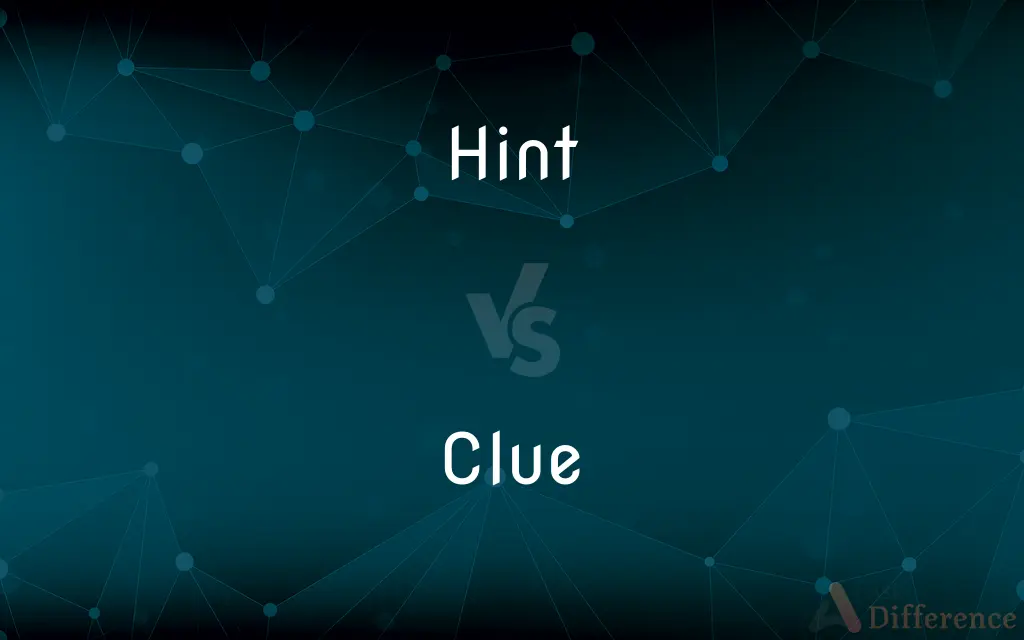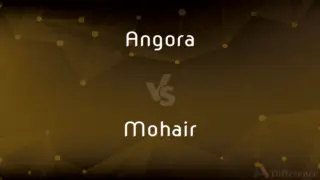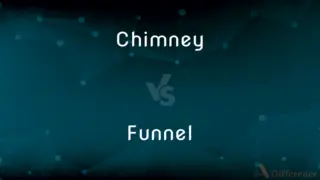Hint vs. Clue — What's the Difference?
By Tayyaba Rehman — Updated on September 14, 2023
A hint is a subtle or indirect suggestion, while a clue is a piece of evidence or information that assists in problem-solving.

Difference Between Hint and Clue
Table of Contents
ADVERTISEMENT
Key Differences
Hint and Clue, though seemingly similar, have nuanced differences in usage and meaning. A hint often implies a subtle or indirect suggestion about something. It doesn't provide a direct answer but rather nudges the listener or reader in a particular direction. On the other hand, a clue is more tangible. It offers a piece of evidence or information which can be used to understand or solve a problem.
In conversation, giving someone a hint often means you're offering them a tiny bit of information, perhaps so they can guess something. It’s like playing coy with information. A clue, conversely, is less about guessing and more about piecing things together. For example, in detective work, clues are gathered to solve a mystery.
The usage of "hint" often comes up in contexts like recipes or advice. Someone might give you a "hint of garlic" or a "hint on improving your skills". Clues are more commonly associated with games, mysteries, and investigations. One might search for clues in a treasure hunt or to solve a crossword puzzle.
To encapsulate, while both hint and clue relate to guiding someone towards an answer, a hint is more indirect and subtle, whereas a clue is a more direct piece of evidence or information leading to a solution.
Comparison Chart
Definition
A subtle or indirect suggestion.
A piece of evidence or information for problem-solving.
ADVERTISEMENT
Usage Context
Conversations, advice, recipes.
Games, investigations, mysteries.
Directness
Usually indirect and subtle.
More direct and concrete.
Purpose
To nudge or suggest.
To solve or understand something.
Association
Guessing, suggesting.
Piecing together, solving.
Compare with Definitions
Hint
A subtle indication or implication.
Her smile was a hint that she agreed.
Clue
A fact or piece of data that assists in understanding.
His behavior was a clue to his feelings.
Hint
A useful piece of advice.
She gave me a hint on how to improve my technique.
Clue
Information leading towards a solution.
The crossword clue was too vague for me.
Hint
A slight or vague indication.
There's a hint of rain in the air.
Clue
A piece of evidence.
The fingerprints were a crucial clue in the investigation.
Hint
A slight or indirect indication or suggestion
He has given no hint of his views
Clue
Something that serves to guide or direct.
The broken window was a clue to the break-in.
Hint
A small piece of practical information or advice
Handy hints on saving energy in your home
Clue
Something that serves to guide or direct in the solution of a problem or mystery.
Hint
Suggest or indicate something indirectly or covertly
He hinted that the sale might be delayed
The Minister hinted at a possible change of heart
Clue
Variant of clew1.
Hint
A slight indication or intimation
Wanted to avoid any hint of scandal.
Clue
To give (someone) guiding information
Clue me in on what's happening around the office.
Hint
A brief or indirect suggestion; a tip
Stock-trading hints.
Clue
Variant of clew1.
Hint
A statement conveying information in an indirect fashion; a clue
Give me a hint about the big news.
Clue
A strand of yarn etc. as used to guide one through a labyrinth; something which points the way, a guide.
Hint
A barely perceptible amount
Just a hint of color.
Clue
Information which may lead one to a certain point or conclusion.
Give me a clue because the question is too vague.
Hint
(Archaic) An occasion; an opportunity.
Clue
An object or a kind of indication which may be used as evidence.
The detectives were looking for some clues at the scene of the crime.
Hint
To express or state indirectly
She hinted that she might prefer our company to theirs.
Clue
Insight or understanding ("to have a clue [about]" or "to have clue". See have a clue, clue stick)
I had little clue that I was being carefully monitored by the CCTV.
Hint
To indicate or make evident in an indirect manner
"The diversity of observations hinted that they had no common origin" (Carl Sagan).
Clue
To provide with a clue.
The crossword compiler wasn't sure how to clue the word "should".
Hint
To give a hint
Wouldn't hint at the true purpose of the meeting.
Clue
To provide someone with information which he or she lacks (often used with "in" or "up").
Smith, clue Jones in on what's been happening.
You need to clue me what to do, I have no idea.
Hint
A clue.
I needed a hint to complete the crossword.
Clue
A ball of thread; a thread or other means of guidance. Same as Clew.
You have wound a goodly clue.
This clue once found unravels all the rest.
Serve as clues to guide us into further knowledge.
Hint
An implicit suggestion that avoids a direct statement.
He gave me a hint that my breath smelt.
Clue
A slight indication
Hint
A small, barely detectable amount.
There was a hint of irony in his voice.
I could taste a hint of lemon in my iced water.
Clue
Evidence that helps to solve a problem
Hint
(computing) Information in a computer-based font that suggests how the outlines of the font's glyphs should be distorted in order to produce, at specific sizes, a visually appealing pixel-based rendering; an instance of hinting.
This font does not scale well to small sizes; the hints for the 10-point letter 'g' still need work.
Clue
Roll into a ball
Hint
(databases) An instruction to the database engine as to how a query should be executed, for example whether to use an index or not.
Clue
A hint or indication about something hidden.
The treasure map had several clues.
Hint
(obsolete) An opportunity; occasion; fit time.
Hint
(intransitive) To imply without a direct statement; to provide a clue.
She hinted at the possibility of a recount of the votes.
Hint
(transitive) To bring to mind by a slight mention or remote allusion; to suggest in an indirect manner.
To hint a suspicion
Hint
(transitive) To develop and add hints to a font.
The typographer worked all day on hinting her new font so it would look good on computer screens.
Hint
To bring to mind by a slight mention or remote allusion; to suggest in an indirect manner; as, to hint a suspicion.
Just hint a fault and hesitate dislike.
Hint
To make an indirect reference, suggestion, or allusion; to allude vaguely to something.
We whisper, and hint, and chuckle.
Hint
A remote allusion; slight mention; intimation; insinuation; a suggestion or reminder, without a full declaration or explanation; also, an occasion or motive.
Our hint of woeIs common.
The hint malevolent, the look oblique.
Hint
An indirect suggestion;
Not a breath of scandal ever touched her
Hint
A slight indication
Hint
A slight but appreciable addition;
This dish could use a touch of garlic
Hint
A just detectable amount;
He speaks French with a trace of an accent
Hint
An indication of potential opportunity;
He got a tip on the stock market
A good lead for a job
Hint
Drop a hint; intimate by a hint
Hint
A small amount of something.
Add a hint of vanilla to the mix.
Hint
An indirect or veiled suggestion.
He dropped a hint about wanting to join the trip.
Common Curiosities
Can a hint be considered a clue?
In certain contexts, yes; a hint might provide information that acts as a clue to a solution.
Is every clue helpful in problem-solving?
Not necessarily; some clues can be misleading or irrelevant.
Is "clue" always related to mysteries?
No, while often used in that context, "clue" can refer to any piece of information that aids understanding.
Can a hint be more direct than a clue?
While hints are typically subtle, context can sometimes make a hint seem more direct, though clues are generally more straightforward.
Why are hints often considered vaguer than clues?
Hints are meant to suggest rather than directly inform, making them inherently vaguer.
Is a clue always factual?
Generally, a clue is considered a piece of factual information, but in fictional settings, it can be crafted.
Can a hint be unintentional?
Yes, someone can inadvertently give a hint through their actions or words.
Why might someone give a hint instead of a direct answer?
To encourage thinking, maintain surprise, or engage in playful teasing.
Can clues be subjective?
While clues are typically objective, interpretation can sometimes be subjective.
Do all games have clues?
No, only games that involve problem-solving or discovery typically utilize clues.
Share Your Discovery

Previous Comparison
Angora vs. Mohair
Next Comparison
Chimney vs. FunnelAuthor Spotlight
Written by
Tayyaba RehmanTayyaba Rehman is a distinguished writer, currently serving as a primary contributor to askdifference.com. As a researcher in semantics and etymology, Tayyaba's passion for the complexity of languages and their distinctions has found a perfect home on the platform. Tayyaba delves into the intricacies of language, distinguishing between commonly confused words and phrases, thereby providing clarity for readers worldwide.













































